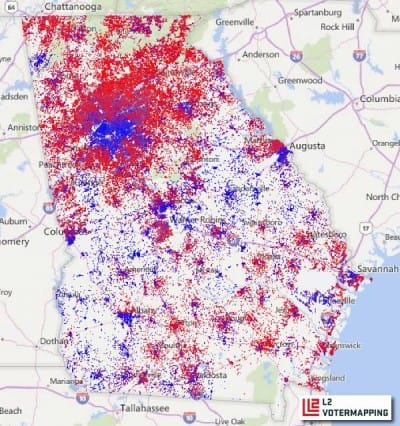Welcome to Georgia: One of the Least Politically Competitive States in the Nation

This week, the Washington Post published an analysis of Georgia's gerrymandering problem. Gerrymandering is the practice of manipulating electoral boundaries to favor one political party or dilute the voting power of specific voting blocs.
Georgia's redistricting process is overseen by its legislature, a common theme among states with a history of uncompetitive elections.
In addition to a surprising lack of competition in the 2014 elections, the Washington Post found:
"But really, it's not that surprising. In the state Senate, where there are precisely zero crossover districts, the most Democrat-friendly district held by Republicans went more than seven points (53 percent to 46 percent) for Mitt Romney, and the most Republican-friendly district held by Democrats went nearly 17 points for Obama (!), 58 percent to 41 percent.In other words, there is no state Senate district that went between 46 percent and 57 percent for Obama. There are really no swing districts, per se."

Of over 200 incumbent legislators up for re-election in the state, less than 5 percent came within 5 percentage points of losing their re-election, and only one incumbent, Democratic U.S. Rep. John J. Barrow, actually lost.
A bill that would move the state toward adopting an independent redistricting commission was put forward in January, but has made little progress since. Independent redistricting commissions, though not completely immune from partisan influence, are considered by most to be a practical alternative. These 'independent' commissions are usually comprised of non-legislators from both parties as well as one or more nonpartisan members. In some instances, the state auditor selects potential commission members from a pool of applicants and then the legislature selects the final members.
Whether or not independent redistricting commissions like those in California and Arizona will be constitutional for much longer is set to be decided by the Supreme Court in the summer.
Image: georgia.gov


